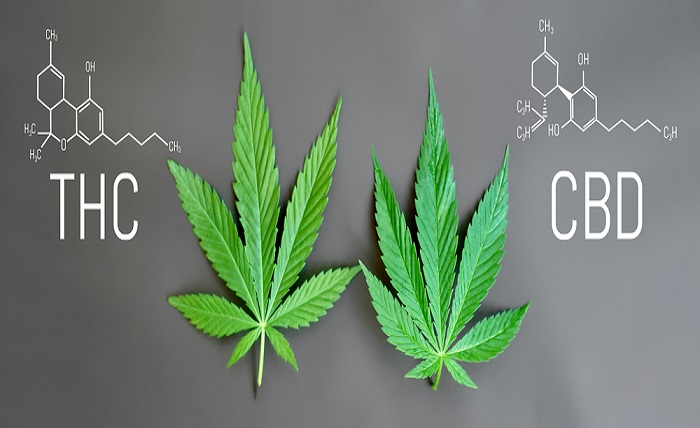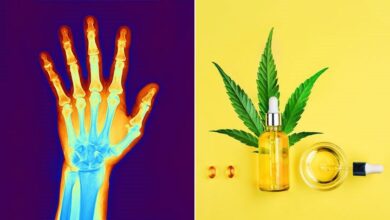CBD vs THC: Understanding the Differences and Benefits

CBD (cannabidiol) and THC (tetrahydrocannabinol) are two well-known compounds found in the cannabis plant. While they come from the same source, CBD and THC have different effects on the body and mind. In this article, we will explore the differences between CBD and THC, their various applications, and the potential health benefits associated with each.
Understanding CBD and THC:
CBD: Cannabidiol (CBD) is a non-psychoactive compound found in cannabis. It is derived from hemp plants and has gained popularity due to its potential therapeutic properties. CBD does not produce a “high” feeling and is commonly used for its relaxing and calming effects.
THC: Tetrahydrocannabinol (THC) is the primary psychoactive compound found in cannabis. It is responsible for the euphoric feeling commonly associated with marijuana use. THC binds to cannabinoid receptors in the brain and produces various effects, including relaxation, altered perception, and increased appetite.
Legal Considerations:
CBD: In many countries, CBD extracted from hemp is legal as long as it contains less than 0.3% THC. This low THC content ensures that CBD products do not produce psychoactive effects. However, it’s important to check the legal status of CBD in your specific region, as laws can vary.
THC: THC is classified as a controlled substance in many parts of the world due to its psychoactive properties. In some regions, it is legal for medical and/or recreational use. However, possession, cultivation, or distribution of THC products outside of legal frameworks can lead to legal consequences.
Health Benefits:
CBD: CBD has gained recognition for its potential health benefits. It is commonly used to alleviate symptoms related to anxiety, depression, pain, inflammation, and sleep disorders. Furthermore, CBD-based medications have been approved by the FDA for treating specific conditions, such as epilepsy.
THC: THC also has potential therapeutic properties. It is known for its analgesic and anti-inflammatory effects and is often used to manage chronic pain. Additionally, THC has shown promise in alleviating nausea and vomiting associated with chemotherapy and stimulating appetite in patients with certain medical conditions.
Side Effects:
CBD: CBD is generally well-tolerated, with few reported side effects. In some cases, it may cause drowsiness, dry mouth, diarrhea, or changes in appetite. However, these side effects are typically mild and temporary.
THC: THC can cause side effects such as impaired memory, increased heart rate, coordination problems, and anxiety or paranoia, particularly in higher doses or in individuals who are sensitive to its effects. It is important to note that these effects are usually temporary and diminish as the THC is metabolized by the body.
Drug Testing Considerations:
CBD: CBD products that contain only trace amounts of THC are unlikely to show up on most drug tests. However, it’s essential to use CBD products from reputable sources that provide third-party lab testing to ensure their THC content is within legal limits.
THC: THC can be detected in drug tests, as it is the primary compound targeted by most screening methods. It is important to be aware of the THC content in any cannabis product you consume, especially if you may be subject to drug testing.
Conclusion:
CBD and THC are two distinct compounds found in the cannabis plant, each with its own unique properties and potential health benefits. CBD is commonly used for relaxation and therapeutic purposes, while THC is known for its psychoactive effects. Understanding the differences between these compounds is essential for making informed decisions about their use. Whether you’re seeking relief from specific conditions or simply exploring the potential benefits of cannabis, consulting with a healthcare professional is always advisable.




